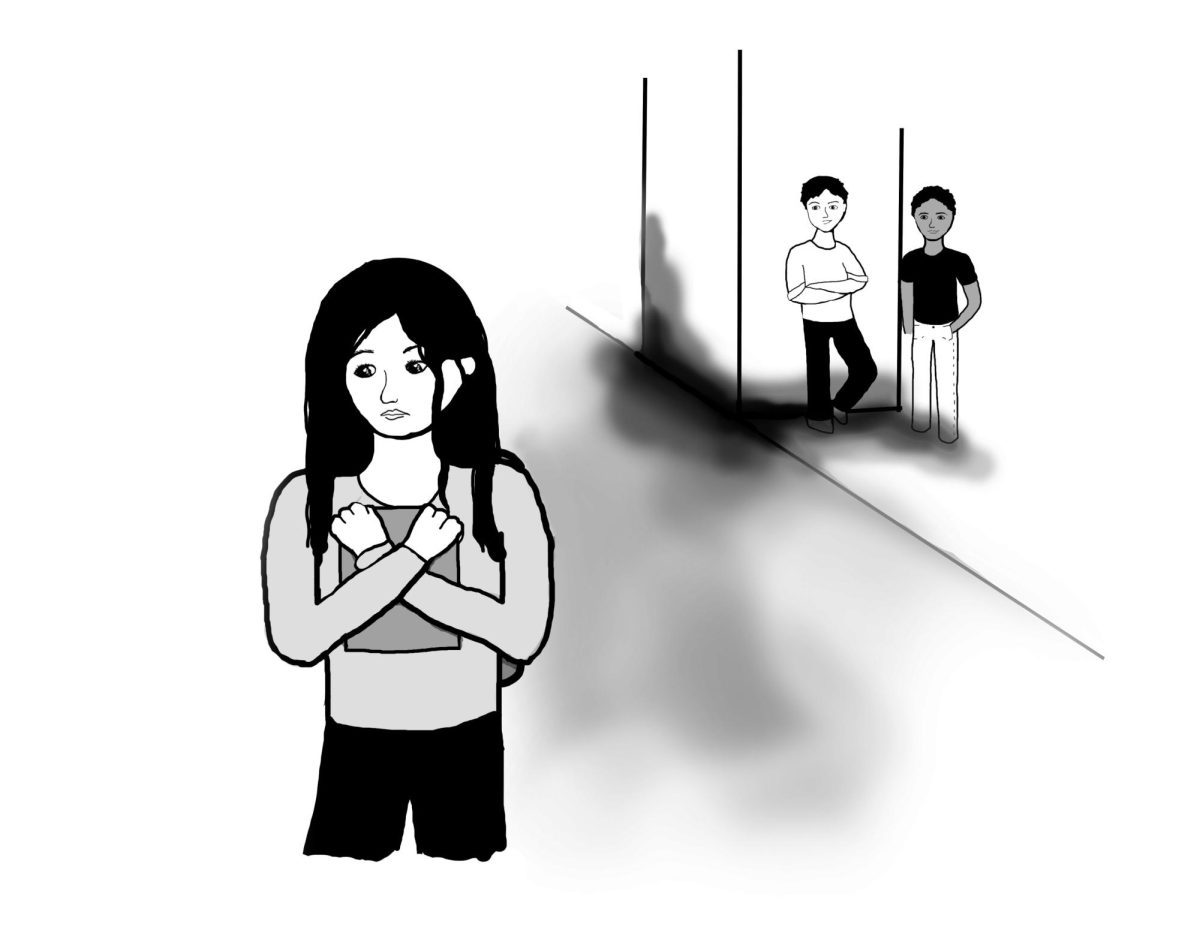This article is part of the Featured section and originally ran with illustrations and a lot of graphic-intensive layout. You can see how the article originally looked in print here.
At a place like Whitman, I can begin to understand why feminism may seem passé; all the hyphenated last names and students with high-powered mothers create the facade of egalitarianism as cultural norm.
But this campus norm betrays my own background and I’m sure the background of many others here; but most important, it betrays the background of most other women in the U.S., not to mention the world.
My last name is my father’s, though he played no role in raising me, and my mom was always primarily a homemaker, who now, post-divorce, is finding it nearly impossible to get a career off the ground.
Some people snicker at feminists, wondering what women really have to complain about now that they can vote, abort and work. But such a view presupposes that feminism is just the domain of white and affluent or middle-class women.
“Feminism,” for many college students, invokes images of women in the ’60s marching indignantly. In other words, it invokes images of the experiences of their own privileged mothers, protesting at a college or fiercely choosing a career in law instead of teaching, and leads them now to conclude that feminist work is complete.
Of course, even when feminism is conflated with whiteness and privilege, critiqued narrowly thus, the work indeed is not done.
“The need for feminism is not over in developed countries. Even in the United States we still have women making 70 cents on the male dollar, approximately,” said Professor of religion Melissa Wilcox. “I was just told yesterday about some research that’s come out confirming that advertising encourages men to view women as objects. We still have huge problems with eating disorders, especially in college-aged women. There are all kinds of reason why feminism still is very relevant.”
A quick glance at feminist blogs like Salon’s Broadsheet or Feministing makes clear there’s enough sexism to offer an overabundance of daily fodder for feminist critique.
Despite that I come to feminism from a different place than many college students, I still recognize the value of feminism even when the brand of feminism embraced doesn’t completely speak to my background.
Those who commit the opposite mistake, shunning first world feminism altogether, who suggest that it’s third world women who actually face legitimate sexist battles, citing genital mutilation, for instance, are misguided also.
In other words, while it is problematic to use feminism as an unmarked term –– unthinkingly collapsing it with the values of white affluent women –– it is equally problematic to dismiss first world feminists altogether and claim that only third world feminists face legitimate patriarchal concerns.
“We really do have women and children living in third world conditions here in the U.S. This is so much more difficult to admit. It is easy to otherize and say, ‘Look how backwards that country is! We’re all set in America! Let’s go help those backwards people out!’ than to say, ‘Holy crap. We have a lot of problems here in the states, and we’re not dealing with them,'” wrote junior Amelia Singer in an e-mail.
“I know that sounds awful in a lot of ways, because I am supposed to be a liberal, worldly, open-minded person who cares about human rights around the world. But by highlighting oppressions countries away, are you helping? Or just by highlighting their oppression, are you further oppressing a population by inserting your own value system of right and wrong?” she said.
Beyond the problems of racist assumptions and misrecognizing first world women who live in third world conditions, a rift exists between first world and third world feminists because of first world feminists’ well-meaning but clumsy and insensitive attempts to “save” or help third world feminists by imposing their values on them.
“First world feminists should not be dictating to third world feminists what feminism is or what a feminist issue is, but rather should be listening to and hearing third world feminists on that question,” said Wilcox.
It is important to recognize the many ways of misunderstanding feminism. Such recognition respects the experiences of all women, and most important, offers the most promise of progress.
“So if you define it that way, that makes it clear that what you mean by feminism when you use it as an unmarked term –– that in itself is interesting –– you do mean white and middle or upper-class. But even then, feminism is still not irrelevant,” said Wilcox.











